
Would you pay hundreds or even thousands of pounds to compete in the stage managed adventure-lite of an exclusive organised race or walking event? Are the huge fees charged by premium events just a rip-off? Perhaps runners and hillwalkers hate that a big monetary value can be placed on things which many see as against the ethos of our sports. But if you don't like it, don't sweat it, suggests Ross Brannigan; put something positive into the outdoors instead.
A couple of weeks ago, I came across something on social media that made me grumble. This in itself is not unusual, but it was the second time in a matter of days I had made such a grumble. The cause of this grumble was an event – an outdoor event, a hiking event – with a rather princely entry fee.
I rushed to the 'Quote Retweet' button, ready to decry how ludicrous this new obsession with 'premium outdoor events' had become, how it was a 'rip off' and no one should enter this event.
Set out with bold ambition like a true warrior. #highlandkings #ambitions #Warriors #ENDURE pic.twitter.com/46LMJQxpvU
— Highland Kings (@KingsHighland) February 27, 2022
Then I stopped.
I reflected on the previous situation, just a few days before, when a number of my fell running friends had been lambasting the Keswick Mountain Festival's recent addition of the Rab Skiddaw Vertical race, costing £47 to enter. At just 8.8km, that's £5.34/km - although bear in mind the entry fee does also get you access to the entire Keswick Mountain Festival, which is also a music festival.
The idea of rich bankers running around the Highlands, 'surviving' the 'wilderness', only to be cocooned like a king in a luxury tent later is the stuff of the Age of Exploration
However, the whole world quickly went crazy with it, and I suddenly regretted my tweet.
And again, I couldn't help but be thrown back to the 2021 story of the 'world's first premium ultra', the Highland Kings Ultra. This event set the outdoor social media world into a frenzy. It even reached BBC News, all thanks to its premium price tag of £15,000.
I am a fell runner and walker and, like many fell runners, I am used to paying £10 for a race and being rewarded with a satsuma (and that's for the winner). When I first saw the Highland Kings race grabbing headlines, I also joined the mob and brought out my virtual pitchfork to rail against this desecration to my world.
What had I achieved in that tweet? I had probably made more people angry, yes, but had I just given the event free marketing? Did I have some followers on Twitter with £15,000 burning a hole in their pocket?
When the new wave of anger at pricey events came along, I took a step back. What did I want to achieve here? As someone who works in events, I also wanted to know: Why do these premium races exist, and why do they make us so mad?
How to sell a tribe
Many run or walk for the sense of freedom, to have an adventure curated by themselves. It's not commercialised.
Any event – just like a pair of shoes, a water bottle or toilet paper – is a product, and there are two fundamental things that the creation of products break down to:
- There is a gap in the market
- There is an audience for that product
To have a successful product, you cannot have one without the other. If there is a gap in the market but there is no audience, you will not sell anything. Conversely, if there is an audience but no gap in the market, that audience is already served. Either way, you aren't making money, and you don't have a business model.
Unlike charities who exist for a greater good and are not in it for the money (in most circumstances), for-profit businesses exist to make money. They want to grow, have a bigger or more events, and thus make more money – and so the cycle continues.
Therefore, what the 'premium events' industry (if we can call it that) is doing is exploiting a gap in the market to meet the needs of an audience it believes are there.
Richard Askwith's book, Running Free, has a chapter on 'Playground Britain', where he deep dives into races like Tough Mudder, the Spartan Race, Wild Warrior, Warrior Run and so many more. He makes some interesting points, but a few caught my eye.
Particularly, the idea of brand, marketing, and taking us 'out of our comfort zone'. Look, for instance, at the Highland Kings Ultra. Spend just a few seconds on their website, and you'll see how clever they are.
Each runner has a branded item on, they have quotes from Sir Ranulph Fiennes, expedition-style watches and words like 'warriors', 'kings', 'wilderness', a whole page on the Scottish kings' 'lineage', and an event which isn't just 'released' but 'unleashed'.
The entry to the Highlander hiking events (note the use of 'Highland' in two events here) also included several branded items. Meanwhile, those who race a Tough Mudder become a 'Mudder' and IRONMAN finishers cross the line to "YOU ARE AN IRONMAN!"
While the events are selling a product (i.e. the event itself) they are also selling an identity; a chance for you to buy into a tribe. A tribe, which will take you out of your comfort zone.
If we look at those who do have £15,000 to splash, where are they most likely to reside? Cities, possibly, with high-level jobs in private businesses. As Askwith writes: "Countless people want to be liberated from the restraints of orderly urban existence. Most fear the complete liberation of a real wilderness adventure. Challenges that provide wilderness-style discomforts but retain the reassurance of slick, well-packaged event management are a lucrative compromise. It is, if you like, Adventure Lite."
"That is a rip off!"
Ask a fell runner why they love fell running and they will tell you: It's not commercialised, and the sense of community. The reason a number of people run or go to the outdoors more broadly is for that sense of freedom; lacing up your boots or shoes and heading out the door on an adventure curated by your good self.
In that sense, it is no wonder my inner circle turns purple at the sight of these events, and therein lies the key point: If these events make you mad, they probably aren't for you. You aren't in their target market.
What worries me most about the big fees is the gentrification of outdoor spaces. There is already a lack of diversity in our National Parks, and events geared towards individuals with cash to splash can only further that alienation.
When I saw people condemning any of the races I have mentioned above, I usually come across a similar phrase: Rip off. A rip off might seem an easy concept to grasp, but it contains a subtle nuance. According to the Collins dictionary: "If someone rips you off, they cheat you by charging you too much money for something or by selling you something that is broken or damaged."
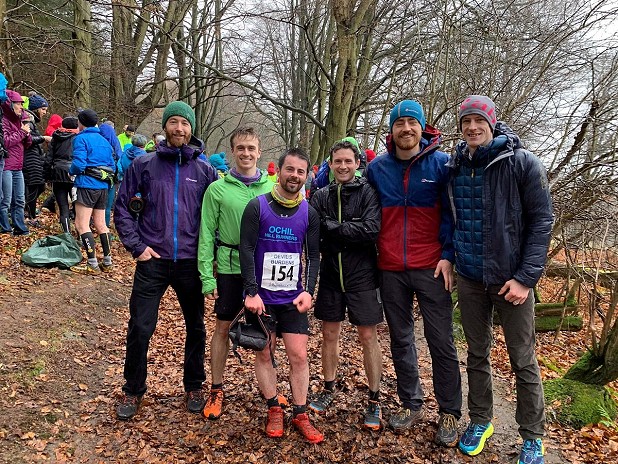
Thus, a product can only be a rip off in relation to another product. For instance, if I set up a business and charged £100bn to visit Titan, it's unlikely many people will call it a rip off, because no one can argue, "Well, it only costs £10bn to go to Saturn, so £100bn is a rip off."
Taking the Highlander event for instance, the 25K race costs £169 for early bird and £209 for later entries. What's the rip off? Well, the fact that you can walk that route under your own steam for a fraction of that. Maybe £20 if you fancied a stop for lunch.
I asked on Twitter what people felt about this, and Ally Beaven gave me an excellent response: "It's interesting to think about why people (myself included) sneer at this stuff. It's not just the money; I paid 800 euro for Tor [de Geants] and would do so again. Maybe it's people attributing value to things that we think are stupid or even harmful."
Glenn Tait messaged to say: "£1600 was price for Cape Wrath [Ultra] and in hindsight it was money worth paying. I felt that the 8 days of running, with the logistics, food, medics and safety on the hills were worth it. It was an all-inclusive holiday really and felt the cost was right … I've done similar adventures paying my own way and maybe not coming close to that as you can do them on a budget. But the compromise is that you normally adventure within your limits but with these "races" I had to rely on these for the support as I knew I'd be pushing boundaries in my own limits."
At 400km for (now) £1799, the Cape Wrath Ultra is around £4.50/km, so cheaper than the Skiddaw Race – and that's with accommodation. For just 193km, the Highland Kings Ultra is closer to £78/km.
Enjoy the comfortable surroundings of our exclusive athlete lounge at each campsite for the ultimate relaxation and recovery.#highlandskings #comfortable #Exclusive #relax pic.twitter.com/vZ8rwiwSUf
— Highland Kings (@KingsHighland) February 3, 2022
Alienation from each other and our wild places
But, as Ally and Glenn say, it isn't just the money. It's what you are paying for, and I would agree with Ally in that many of us get upset about these races because we believe that monetary value is being placed on things which many of us see as against the ethos of our sports.
Don't write an angry tweet and provide them with free marketing. Do something more positive!
One of the big things I see is a commercialisation of the sense of community. What separates the Skiddaw Fell Race from the Rab Skiddaw Vertical race is that the former is run by the community for less than a quarter of the price, with none of the fancy timing gates, branded marketing materials, t-shirts, race photography (though, usually these are an additional cost), and that general feeling of identity derived from 'community'.
Community is a sense of belonging, and a feeling of trust, respect and collective consciousness among others. You can't buy into that. Often, what I see with these premium events, is an opportunity for people without a community to buy into one, commodifying something many of us are freely a part of.
The branded materials, the collective nicknames, the sense of conquering something together. It all feeds in. In part, the rest of us do buy into such communities (you pass someone wearing a particular brand of shoe and you give them a wink, or you give a knowing nod to someone who has raced in the OMM), but there's a subtle difference to it. Perhaps the fact it isn't driven by a tribe-like mentality around one event that is exploiting that feeling for profit.
What worries me most about a number of these events is the gentrification of outdoor spaces. If this model catches on, more will follow suit. The Landscapes Review report of 2019 (AKA the Glover Report) showed there is a lack of diversity in our National Parks, and creating events geared towards high-flying individuals with cash to splash in our wild places, we only further that alienation.
Moreover, as someone with a passion for wild places and nature, I get concerned over the language around 'warriors' and 'conquering' a challenge in the Scottish 'wilderness'. We could debate at length whether Scotland has any 'wilderness', but this now-outdated idea of rich bankers running around the Highlands, 'surviving' the 'wilderness', only to be cocooned like a king in a luxury tent later is the stuff of the Age of Exploration.
Again, it's an alienation between us and our natural world. Something to either be gawped at like a museum piece or be conquered like an opponent. It's easy to do, too, with everyone telling us how the outdoors is a quick-fix to mental health problems.
I personally get conflicted on this, because we actually do want more six-and-seven-digit-salary individuals caring for our wild places so our environmental sector is properly supported, but that can only happen if they feel moved by it. Will they feel moved by it paying £15,000 for a Ranulph Fiennes endorsed event and sleeping in a luxury tent? Maybe.
So, what can you do?
Instead of smashing the 'Quote Retweet' button, writing a grumpy tweet and simultaneously providing free marketing – stop. Put something more positive into the world. Support local, community events, volunteer, or show a friend how amazing the outdoors is without the need for an over-priced hiking event with branded materials. You are potentially saving them a lot of money and preventing more events milking the 'wilderness' cash cow.
These events might be here to stay, but there's no point tearing hairs out for them. As I said earlier: If they make you angry, they aren't for you. Instead, turn it into a positive, and save yourself the anguish.
Ross Brannigan is a Scottish runner, cyclist and writer living in the Lake District. His book Running Adventures Scotland is out 5 May 2022. Go to rossrunswild.com for more

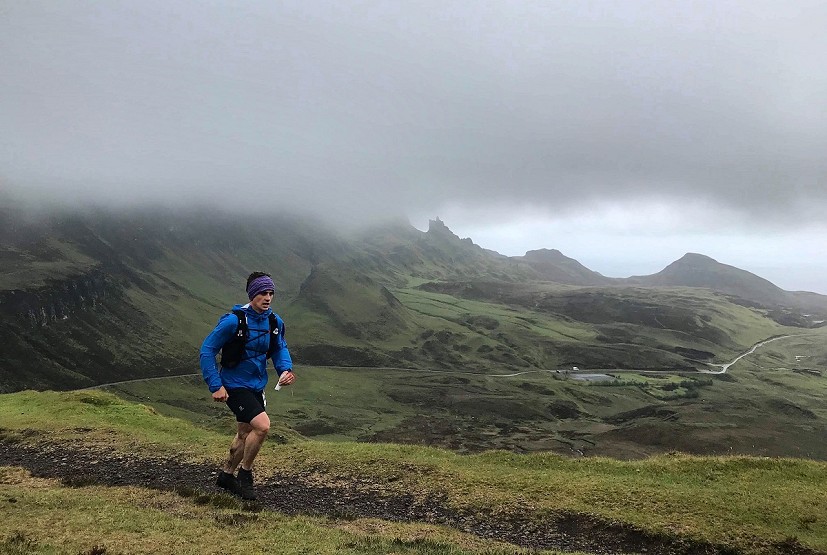
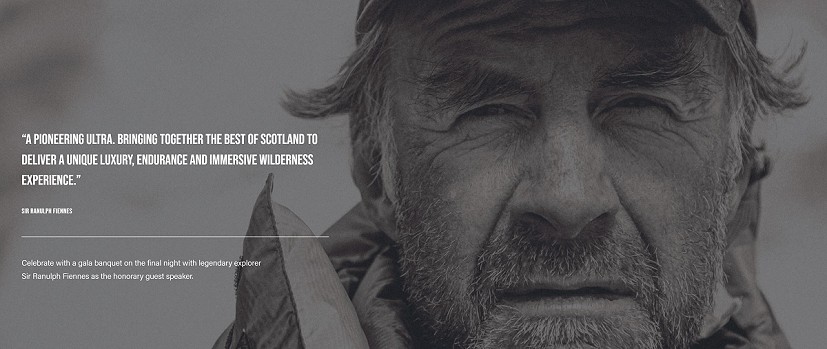
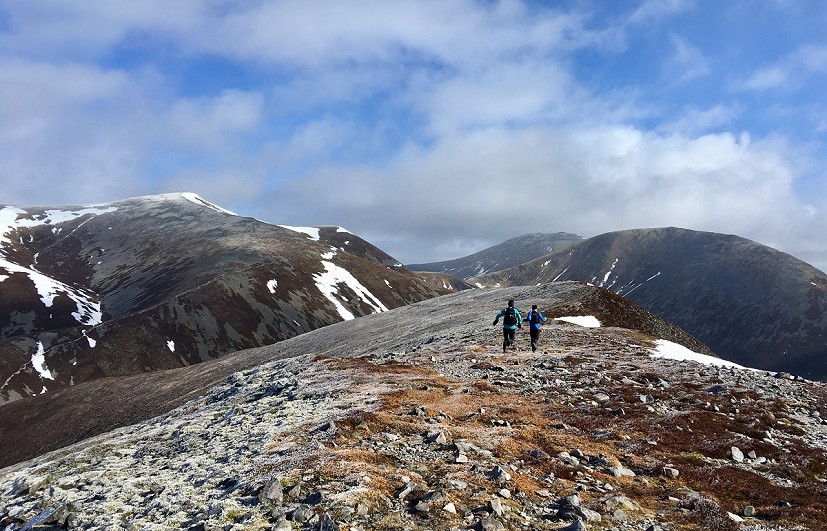








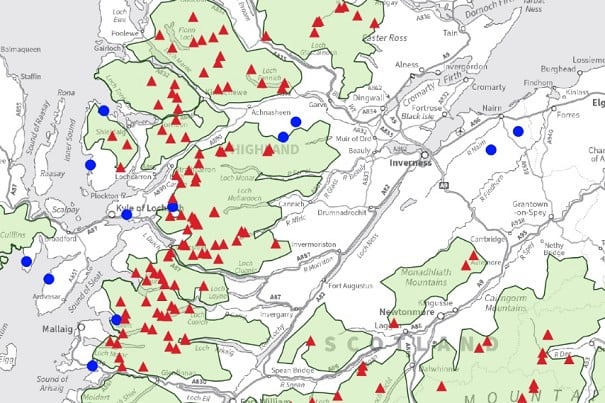
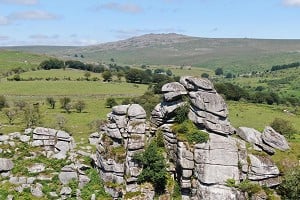
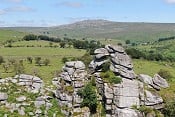
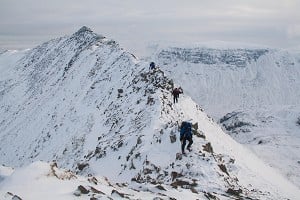



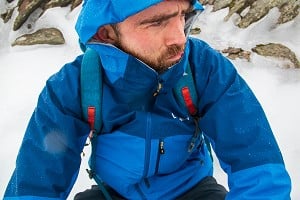

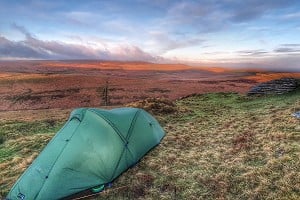
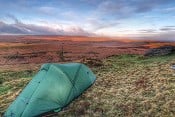
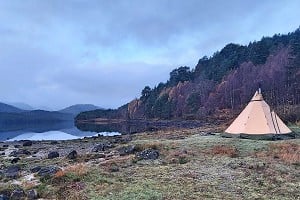
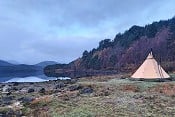
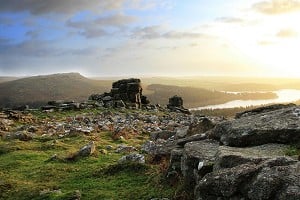
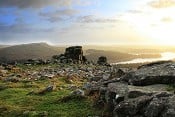
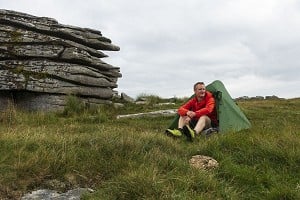

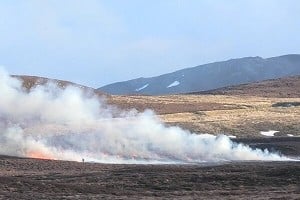

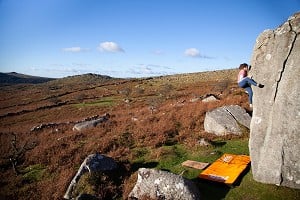
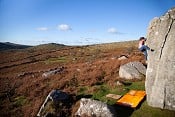
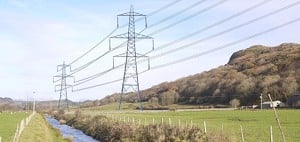

Comments
£10 entry and a satsuma? In my day we paid sixpence to enter and the winner was lucky to get a pat on the back. Bloody inflation.
I'm not a fell runner, but what irks is the presumption that these events have exclusive access to the "course" (i.e. our shared wild spaces), in much the same way as filming companies have recently blocked access to Windgather or Ilkley.
Seriously, what would stop a fell running club running a parallel event at the same time over the same hills?
Or a bunch of individuals "gate crashing"?
You've missed my main complaint of the wild being clagged up with lots of premium branded challenge tw*ts...
What they get for the £££, they take from the rest of us.
If you want a tough challenge run laps of a inner city multistory carpark on a wet and windy November night - you can even have a tepee and yurt massage experience on the top floor but watch out for the sharps and pools of piss.
I'm sure an impressive and branded back drop for you to be photographed in front can be arranged of so you can "impress" the office with your triumph on Monday.
Nothing whatsoever; the mountain is public. But some people like those bigger, more expensive events. Why should they not? What they're paying for is the high quality support, not access to the hills.
I've done a Rat Race event (the one on the Cornish coast) and while it was fairly expensive I could see where the money was spent so it didn't feel a rip-off. There was no attempt to block anyone else from using the area. These aren't super-premium but they're certainly pricey.
Fundamentally I think "snobbery" is bad just as genuine exclusivity is - the hills are for all of us, rich and poor. All I'd be pushing for is that these expensive events do spend a decent amount on donating to conservation projects and similar in the area - those paying £500 for an event simply won't notice an extra £50 towards that, say.
"What worries me most about a number of these events is the gentrification of outdoor spaces."
It's the commercialisation of them that bothers me, and the subsequent association in the minds of others - most definitely not the UKC/H community, I should add - that our wilder places and activities in them are accessed by paying a fee; freedom to roam, as long as you bring your credit card.
Events like sponsored three peaks challenges are a different expression of the same idea. I don't like them either.
T.